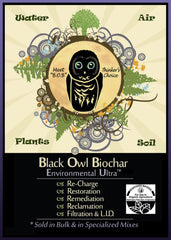Marine Environments
 Port locations are selected to optimize access to land and navigable water for commercial demand, and for shelter from wind and wave. Ports handle every kind of traffic, support and storage facilites, may extend for miles and bring much to the local economy, but environmental consequences of heavy trafic in these areas are prominent.
Port locations are selected to optimize access to land and navigable water for commercial demand, and for shelter from wind and wave. Ports handle every kind of traffic, support and storage facilites, may extend for miles and bring much to the local economy, but environmental consequences of heavy trafic in these areas are prominent.
 Ports, given their very nature, contaminate shorelines with sediments. Enormous ships with engines running on the diesel fuel frequent ports thousand of times a day. Organisms inhabiting shoreline flats uptake sediments which negatively affects the health of the harbors' seas organisms, the waters' food chains, and ultimately human consumption of seafood.
Ports, given their very nature, contaminate shorelines with sediments. Enormous ships with engines running on the diesel fuel frequent ports thousand of times a day. Organisms inhabiting shoreline flats uptake sediments which negatively affects the health of the harbors' seas organisms, the waters' food chains, and ultimately human consumption of seafood.

There are several initiatives to decrease ports environmental effects. These include the World Ports Climate Initiative. Studies at Stanford University (Madalinski et. al, 2008) in conjunction with the EPA concluded that a 3.4% application rate of activated carbon to harbor sediments lowered potential exposure to biota by 90-95%.
Biochar is a "green" product and is processed by Biochar Supreme, LLC to make it effective, competitive and preferable to chemcially-processed and mined activated carbon. Black Owl Biochar makes projects possible because it can replace GAC at about a tenth of the cost and has a very high efficacy rate in the sorption of harmful materials at port sites.
 Biochar Supreme's Ultra Environmental Biochar (TM) listed as Organic Approved, is one of the few biochars to have the high-porosity, high-surface area, high-activity, high ion bonding to achieve these important improvements in remediation such as ports and harbors. We offer the Environmental Ultra product raw or in mixes to meet your project requirements. To order a sample for testing, please click here. For more specific specs, please email us at info@biocharsupreme.com and we will collaborate with you on your project.
Biochar Supreme's Ultra Environmental Biochar (TM) listed as Organic Approved, is one of the few biochars to have the high-porosity, high-surface area, high-activity, high ion bonding to achieve these important improvements in remediation such as ports and harbors. We offer the Environmental Ultra product raw or in mixes to meet your project requirements. To order a sample for testing, please click here. For more specific specs, please email us at info@biocharsupreme.com and we will collaborate with you on your project.

